Mouse-opoly: Is Disney Dominating the Entertainment Industry?
Avengers: Age of Ultron. Frozen. Star Wars: The Force Awakens. What do these three movies all have in common? Is it their record-breaking (or sure-to-be) sales? Their modern take on old stories? These things are true, but their greatest secret isn’t about the movies themselves, it’s about the company that made them.
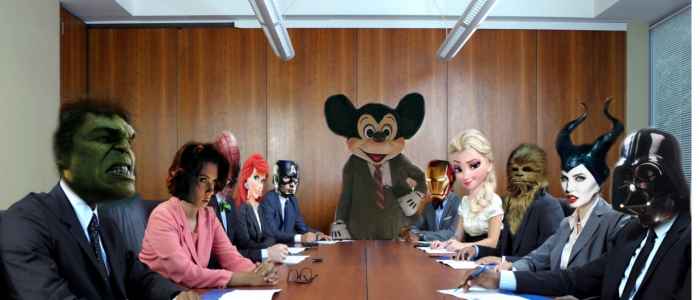
Whether audiences know it or not, The Walt Disney company has dominated the entire entertainment industry in the past decade. Disney has been a household name since the late 30s, but it has been really expanding the properties it owns over the past ten years. Disney has bought up a lot of the most recognizable IPs (intellectual properties) in the entertainment business, and is bringing new life into these franchises.
However, this leaves two main concerns for savvy-minded audiences. First, is Disney monopolizing the entertainment industry? Second, if they are, is it actually a bad thing? Americans have been raised to hate the idea of a monopoly. There’s even a board game about it that is infamous for creating chaos and mania in the relationships of its players. For those who love conspiracies there’s even Disney versions of monopoly!
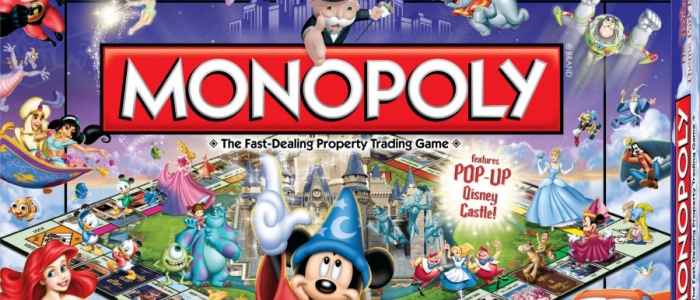
It Was All Owned by a Mouse
Before calling the anti-trust lawyers, it’s important to decide if there’s actually a threat of a monopoly present. For those unfamiliar with the concept, or those who have always heard it was a bad thing without ever knowing why, a monopoly is “complete control of the entire supply of goods or of a service in a certain area or market,” according to Merriam-Webster. This doesn’t really define Disney. Disney does not control the rights to all film, TV, and game franchises, nor does it systematically stomp out the competition. Disney is, however, going after the cream of the crop.
Whether the slightly out-dated members of the Academy are willing to admit it, the age of the nerd is in full swing. There’s no argument to be had; anyone who’s not living under a rock can see that geek culture has dominated the 2010’s. Nearly everyone is a gamer (Candy Crush and 2048 are games, which makes any one who plays them a gamer), superheroes are dominating and toppling box office records, and the biggest corporations are throwing billions of dollars at what, 20 years ago, would have been laughed out of the board room.
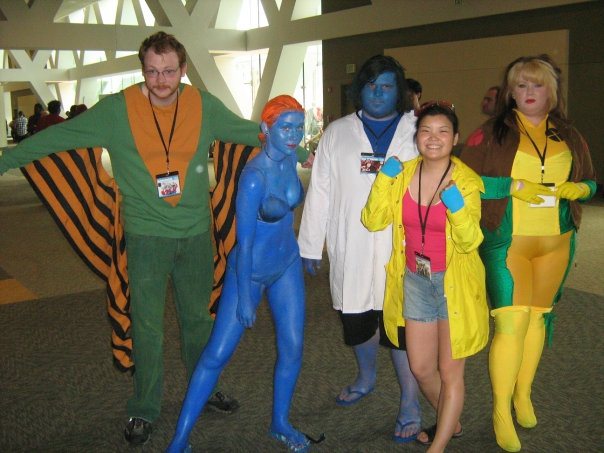
Disney has always had a great sense of audience. Disney knows exactly what an audience wants even before the audience even dreams of it. So it makes sense that Disney is utilizing nerd culture as its newest marketing tool. If there’s two things nerds and geeks love more than anything it’s superheroes and Star Wars. As far as business decisions go, buying Star Wars from George Lucas is one of the best, and one that has been largely fan-approved, but that’s a point for the next section.
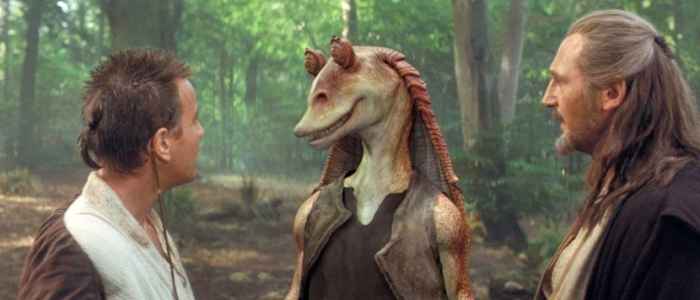
One of the biggest tells of a monopoly is creating an environment where consumers are coerced into believing that the best option comes from one company, and that all other companies are only second-rate wannabes. Disney doesn’t have to do any of the heavy lifting, the adoring public will do that for it. But how can this possibly be the case, Disney doesn’t own every IP, and many of the other major studios are still doing fine. But does Disney really need to be a monopoly? When all the biggest movies are Disney’s, how long will it be until Disney is the only company who can risk big productions?
Superhero Movies
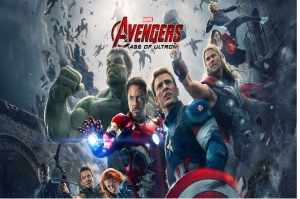
Sony’s superhero powerhouse, Spider-man, was recently bought by Disney, and there’s very little left in the way of Marvel superheroes. In fact, the only two Marvel properties being used outside of Disney’s reach are X-men, which is doing well but not Avengers well, and The Fantastic Four, which has yet to make any waves cinematically. The only real contender here is the DC cinematic and television Universes. DC (and their partner company Warner Bros.) have found a great deal of success with television audiences with their shows Arrow, The Flash, and Gotham. While the Dark Knight trilogy is beloved by movie-goers, DC has yet to produce a consistent formula for success. Batman vs. Superman: Dawn of [the] Justice [League], may prove to be a worthy contender of the Marvel Cinematic Universe (MCU). However, Disney has been in the superhero-movie blockbusters since 2008, and many critics see the latest mass-release schedule as the first sign that the superhero genre is on its last legs, so DC may be joining the fight a bit late. Either way, Disney doesn’t seem to have any intention of buying DC movie rights away from Warner Bros., not that DC or Warner Bros. would be willing to.
Star Wars
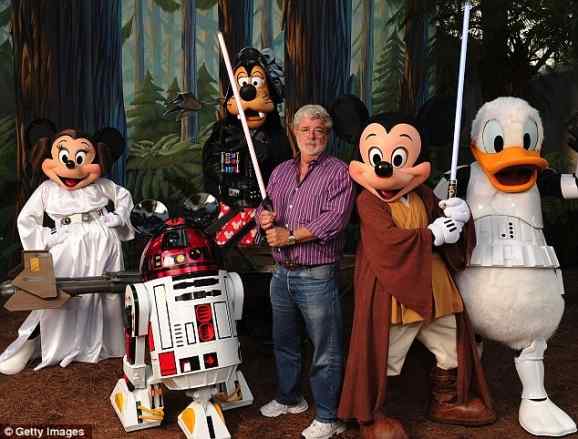
Star Wars isn’t the only classic science fiction franchise to get a contemporary film. Star Trek, Terminator, and Robocop have all gotten sequels or reboots within the past few years, and none of those are owned by Disney. JJ Abrams is, however, the director for both the Star Wars and Star Trek films now, so Disney may be trying to cash in on the success Abrams had with Star Trek. So clearly, Disney isn’t trying to monopolize the entire science fiction genre, or even the classic science fiction reboot sub-genre. While Star Wars: The Force Awakens is sure to be a hit at the box office, so was Star Trek, and there has yet to be any talks of Disney buying that franchise.
Disney Originals
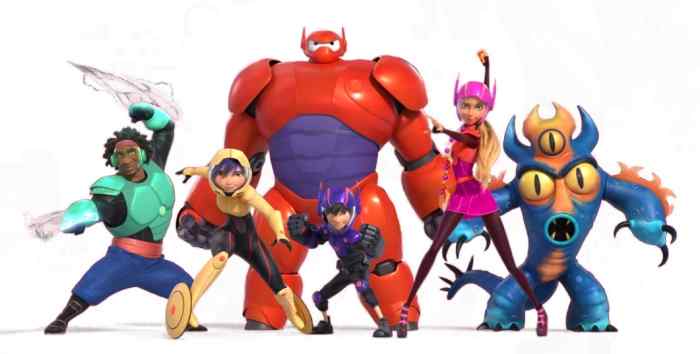
So what about the original movies Disney actually created? Disney has always been an animation powerhouse, but lately have made a bunch of live-action films, specifically ones based off of their popular theme-park rides. Disney and Pixar have always been synonymous, but its important to remember that they actually aren’t. Pixar originally splintered off from LucasArts (which Disney Bought in 2012), and was later bought by Disney in 2006 for 7.4 billion dollars. While Disney had produced all the Pixar films, it never fully owned Pixar as a company. So now, even if it wanted to, Pixar can’t create movies for any other company than Disney.
But even with this acquisition, Disney still isn’t the only producer of animated films. Dreamworks has done its best to be Disney’s biggest animated competitor with films like Shrek and How to Train Your Dragon. Disney may be setting the bar pretty high for competitors, but there is plenty of business for other animation studios. The Shrek franchise alone brought Dreamworks over 3.5 billion dollars worldwide, and the How to Train Your Dragon franchise has made over 1 billion worldwide. Even comparing these numbers to Disney’s powerhouses—the MCU (8.9 billion), and Frozen (1.8 billion)—makes Dreamworks a worthy competitor to Disney.
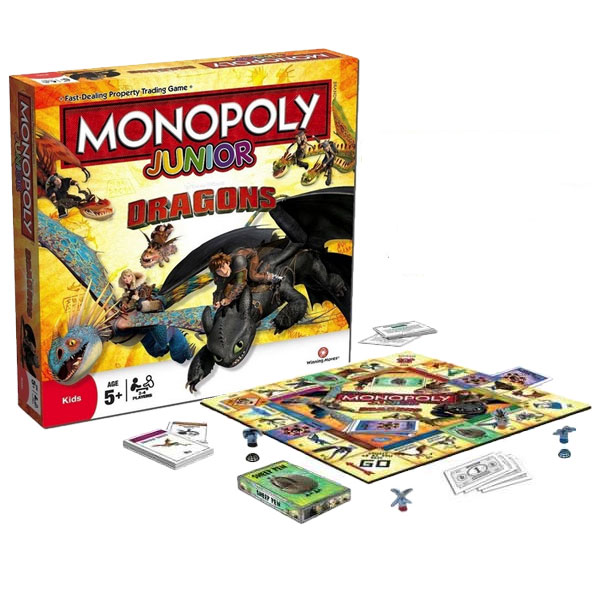
Is the Mouse-opoly Really a Bad Thing
So Disney isn’t really a monopoly, at least, not yet, but what if it were? Would it actually be a bad thing. Monopolies might be a bad thing for most industries, but would Disney actually be a bad company to be the dominate owner of the entertainment industry? So far Disney has done nothing but great things for all of its properties. Just looking at the numbers shows how well critics and fans alike respond to Disney-run franchises. Critically, their properties are at an all-time high, and fans can’t seem to get enough. Disney doesn’t need to monopolize the industry, fans are handing it to them on a silver platter.
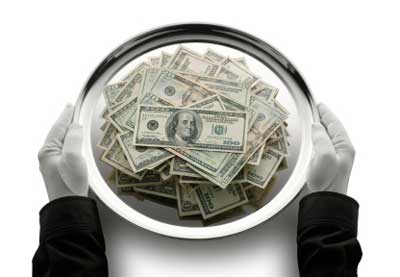
Where is the artistic freedom in an entertainment industry run by one company though? Honestly, the art of film making may even prosper if there was only one big company left. However, it is always dangerous to make these kind of conclusions without some real-world examples. The video game industry is a prime example of what a Disney-dominated film industry would look like.
David and Goliath
While there certainly isn’t a monopoly within the game industry, there are certainly Giants. Giants who have done their best to beat out or bought out the competition. Game development is a bit too complicated to detail in this article, but there used to be a large range of publisher and developers. Now, however, there is really only room from the AAA companies, which is the classification given to the biggest and richest companies, mostly because the AAA companies have made it nearly impossible for lesser companies to stay in business. Oh, and, the indie companies, which are dominating the gaming industry. The amazing indie culture may not be a direct product of the AAAs taking over, but the stark contrast between AAA and Indie games has made being an indie developer a great business. So, at least for gaming, a monopolization was only a real threat to the other slightly-less big dogs.
Independent movies have always been a vital part of the film industry, and are thriving especially-well in the Internet age. Even if Disney were to truly take over the film industry, independent movies would still flourish, if for no other reason then that they aren’t Disney movies. Creativity and artistic freedom would not be extinguished, in fact, it may even blossom.
Dr. Walt: Or I How I Came to Love the Mouse
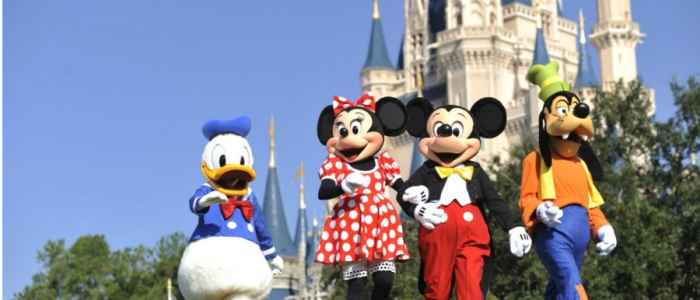
There are certainly some major concerns that come with a monopoly, but so far Disney has yet to be the bad guy. Disney using its massive purchasing power should not be seen as a devious plot to take over the film industry, but instead as a company that knows what its audiences want, and has proven that they can take care of their own. With the imminent release of the next, strongly promising, Star Wars film, Disney may prove once again that they are more than capable of doing great things with their properties. Disney doesn’t do risk; Disney knows how to make a great product, and a product that stands the test of time. So, even if Disney ever became a true monopoly, which it really doesn’t show signs of, there really doesn’t seem to be anything to worry about.
Removing the Rose-Colored Glasses
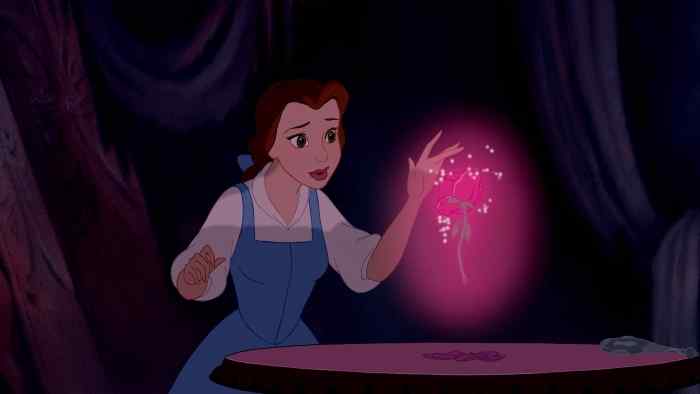
It looks like there’s nothing to worry about if Disney takes over the entertainment industry, but realistically there is plenty to worry about. It’s still true that independent film makers could flourish, and that Disney would most certainly do some great things with whatever properties it owns, so does Disney really need active, big-company, competition? Absolutely, and, in this case, not for the reason one might suspect. Without competition Disney has no reason to be the best anymore. One of the greatest aspects of an anti-monopoly business climate is the need to compete. Competition drives businesses to constantly do better, to push harder, to imagine bigger and better ideas. The reason Disney has done so well for itself, and its audience, is because they have competition that requires them to be the best, or the Disney image would fall.
If Disney was allowed to become a monopoly, then they’d no longer have a reason to try as hard, and audiences would only receive content that was as good as Frozen and Star Wars. That might not sound like a bad thing, but with competition Disney may prove to continue to produce content that is constantly better, and will consistently drive audiences to the box office. Speaking of the box office, what would happen to it when there’s only one company making all of the movies. Eventually, all of the movie theaters would be bought and owned by Disney. That might seem like an absurd idea, but that’s exactly how Hollywood started. Every major studio owned their own chain of theaters, and only let their movies be shown in those theaters. Eventually they realized that this business model didn’t work as more and more movies were being produced, leading to the studio-movie theater relationship that exists today.
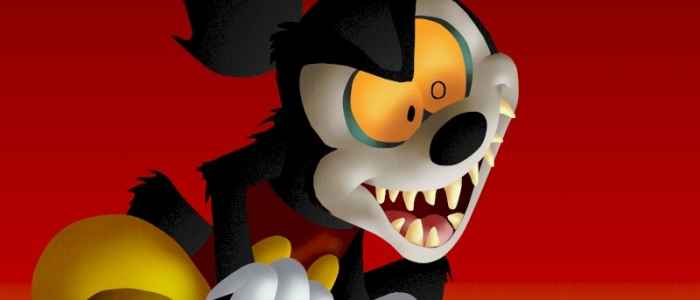
It’s ultimately hard to tell what exactly would happen if Disney took over the entire industry. It might prove to be a great thing, but it could also lead to the entertainment industry becoming dull. Directors like Quentin Tarantino and Wes Anderson would most likely still be making movies, but either their budgets would be incredibly small, or their movies would be monitored by Disney to the point that they’d be unrecognizable. Audiences really shouldn’t worry though. Disney is certainly buying up a lot of major properties, but so far they haven’t bought anything that doesn’t logically match Disney’s usual content. Disney might be one of the richest corporations in the world, but they still don’t have the level of finances needed to buy out all of their competitors, and so far they don’t have a reason to.
What do you think? Leave a comment.











If Disney’s goal was “great storytelling” their animated movies would be in the same caliber as storytelling told in books and in live action. But we don’t dare make that comparison. For some reason we let Disney animated movies live inside a bubble where we pardon the fact that compared to masterpieces found in Japanese anime, in movies and in books, their stories pale so much in comparison (Looking at Frozen). But we give them accolades anyway because their competition inside that “great storytelling in animation” bubble are yellow inarticulate dimwits that make funny noises.
I can see your point. There’s definitely some great and intricate stories within anime. However, it’s hard to argue that Disney’s animated movies resonate strongly with an entire generation, and that its stories are near and dear to a lot of people’s hearts.
While not every movie may have great philosophical themes or incredibly dynamic characters, it’s important to realize that the label of a “great story” is only truly given by those it’s being told to. Since Disney has time and time again told stories that people around the world love, I think it’s fair to say that they tell great stories.
Two major problems with this argument, and an observation about anime…
1) It’s specious to assert that books and live action necessarily have better storytelling than Disney animated films simply by virtue of being books and live action. Which books are you talking about? Which live action movies? Are you suggesting that, say, Snow White and the Seven Dwarfs is worse at storytelling than Wild Wild West? Or that Beauty and the Beast WASN’T deserving of a Best Picture nomination? Or that a Harlequin romance is better than Little Mermaid or Cinderella?
2) The idea that Disney is uniformly childish is simply wrong. I’ve been finding the classic fairy tales more engaging as an adult than I ever did as a kid. And then there are the non-fairy tales that most people overlook, that are brilliant in their own rights. Fantasia is one of my favourite movies ever, not just my favourite Disney movies. Or Three Cabelleros, or Atlantis, or Melody Time, or Dumbo, or Tarzan. Don’t brush Disney off based on the common misperception that Disney is just for kids.
On anime…
There is a fundamental difference in how animation is perceived between Japan and America. In the United States, animation is largely considered a genre while in Japan it is largely considered a medium. In the United States you get a more narrow range of Disney-style films or Pixar-style films, while in Japan you get wildly divergent things from Studio Ghibli to Attack on Titan to DiGi Charat to Macross.
But don’t make the mistake of thinking that this automatically makes Disney bad and anime good. There is LOTS of TERRIBLE anime out there. For every Makoto Shinkai, you get some terrible, silly bit of fluff that is indistinguishable from every other magical girl buddy comedy or whatever is hot that year. And we don’t even GET most anime over here. It’s easy to point at really good examples of anime and say it’s better than Disney, but it would be just as easy to look at pointless, silly, violent, cliche, disposable anime and argue that Disney is better. The very nature of anime as a medium prevents you from being able to say it is uniformly “better,” because you have to ask which anime you’re talking about.
There’s far more juvenile Japanese cartoons than anything. And some of it is even coherent. Disney films succeed or fail on their own merits (ever seen Black Cauldron or Atlantis?).
I would hardly use “The Black Cauldron” as an example for criticizing the coherence or childishness of anime. The Black Cauldron was the single worst animated film ever made by Disney. I’m amazed that TBC didn’t result in the complete shutdown of Disney’s animation unit.
TBC demonstrates the difference between old Disney management and the mercenaries running the asylum now. The crew presently running Disney probably would have been tripping over themselves in their rush to shut down the animation unit if they had been in charge during the period of time when TBC was released. It was terrible and a huge flop.
Also, naming “Atlantis” as a counterpoint to Anime seems ironic considering that it was heavily influenced by the very cartoons that you are calling incoherent and juvenile.
A lot of anime is juvenile, but a good chunk of it isn’t and North American animation has no analogues for the anime that isn’t juvenile. I don’t see any any American equivalent to films such as “Wings of Honneamise”, “Akira”, “Perfect Blue”, “Millennium Actress”, “Ghost In The Shell”, “Patlabor”, “GotF”, “Night on The Galactic Railroad” and on and on. Hell, I’ve never even seen an American kid’s cartoon that did what San Rio did in “Chirin’s Bell” which was prettly well intended to be a little kiddy show. The closest any western commercial animated movie got to being a “serious” drama was Rosen’s adaptations of “Watership Down” and “The Plague Dogs”. Those two are great animated films in my book, but a complete anomaly when it comes to western animation.
If I could only invest in one stock, it would be Disney.
Same! Or Google.
I think they should leave star wars along. it ended and that’s it. besides the original actors Ford , Fisher Williams, Hammil to old to play their roles again. Much much further are they going to go on that franchise., till it becomes a bore.Let star wars rest in piece And what I see of antman,thats a joke
I have high expectations for Star Wars. I think Lucas ended the franchise on a pretty sour note, and I think Disney has given enough freedom to the crew to make it something great.
There’s definitely something to be said for recognizing when a series has jumped the shark, but from what I understand of the story, I think they are separating these movies enough that they can really exist on their own level. Plus, they happen 20 years or so after VI so all the old actors should be about the right age.
Ant-man does look pretty silly, but the comics have been as well for some time. I’m not sure how it’ll work as a superhero movie, but I guess we’ll just have to wait and see.
This is such a great article, G! So well written and super interesting. I knew Disney owned a lot but hadn’t really thought about how close they were getting to becoming a monopoly. I still love them though 😉
Thanks Jillian!
They’ve been more or less a monopoly since the mid 1990s, really. Even back then they owned several companies such as: Hollywood Pictures, ESPSN, ABC family, Miramax (formally), and even the Power Rangers for a brief period of time.
What an interesting read! Your point about comparing quality of the films to their great story telling, because, while I believe that it the intention, Disney has learned to sell you an emotion through that story, which may or may not be what you deem as a “great story”. Great thoughts nonetheless.
I absolutely agree. I think that’s what any smart business tries to do. We live in a culture where emotion sells stories and products, and only the smartest companies like Disney and Coca-Cola know how to use it effectively. I never saw that as a negative though because even if their intentions aren’t pure, the emotions you feel are, which makes it special for you. But great point!
And thank you!
Story telling is interesting because* (I couldn’t edit my post boooooo)
The only thing that really bothers me about Disney is that it crushes every other animated films at the Oscars. Except for Spirited Away and couple others, Disney basically wins every year, even if the film they made for that year was just ok. At times in seems unfair that Disney is guarantied to win every year; just look want happened with The Lego Movie snub.
I would argue Disney’s performance at the Oscars says more about the demographic of the Academy voting pool than it does about Disney’s products.
It’s not hard to imagine why the Lego movie wasn’t well received when the average age of Oscar voters is 63 years old…
Regarding the storytelling in Disney productions, sometimes I don’t think many people in charge of projects really understand what makes a great story when it comes to media entertainment. Film/TV stories are told from the perspective of the storyteller to the audience, and are completely different from the stories in choose-your-own-ending books or video games, since the audience has no means of altering the story themselves, unless they become the storyteller. It’s all about suspension of disbelief and convincing the audience to invest in something that is either entirely fictional, or has been altered from true events for artistically dramatic effect. The people who make the films and shows must be completely invested in the material, so the audience can connect to the emotional drama through the art, music, sound, lighting, texturing, acting, staging etc to help sell the themes and messages of the motion picture entertainment. Yet there will always be someone who doesn’t like a particular piece of entertainment, but that’s human nature. I also don’t believe in the idea of story being the most important element, it’s all the elements working together to sell the storyteller’s vision. A great story can be made even greater with added sounds and visuals, that’s why we have theatre and motion pictures. Video games and other interactive entertainment can be great too, but they rely on audience interaction to drive the story forward. The other problem regarding games especially is their limited shelf life. Films/TV shows only require transfer to a usable viewing format which allows for multiple visits. Games are limited to their hardware and operating systems, and the older the title becomes, the harder it gets to be able to revisit them.
Call me crazy but I actually don’t look forward to a world of rich, 3D immersive enhancements. Disney, do indie stuff.
This article proves my point that all Disney is interested in quantity not quality and that they are a monopoly.
Making money off of existing proven moneymakers isn’t all that difficult. It doesn’t take much imagination or originality. I mean, it’s hard to believe now, but at one time, The Mouse Company was truly an innovative trendsetter in the industry. Those days are long gone, baby…
Let’s not forget they bought the Muppets.
Although Disney’s Marvel films may not have a monopoly on superhero films I find that so many Marvel fans see the superhero film industry as a competition between DC and Marvel, where they can only enjoy one side. Plus Marvel does have the better reputation for films, which also leads to a lot of bias for their films and relentless nitpicking of DC films.
Nice article. I love the funny image captions.
Thanks!
Movies are more than entertainment. They seed our imaginations with ideas. Disney has a fondness for the happily-ever-after idea and the great American idea that the rich guy isn’t always the best choice if you want to live happily ever after. It is part of the American Dream to watch the hunter win the heart in Frozen despite the fact that workers in the U.S. are paid lower wages than in many other liberal democracies of western European origins. To have Disney controlling the entertainment industry would be like having Monsanto owning the food industry.
Wonderful article! I really liked your spin on the topic. Disney isn’t as bad as I initially thought. Love the title of the article as well. 🙂
Thanks for the Topic! I’m glad you enjoyed my take on it.
Hi G Anderson Lake,
Nice article. You’ve laid out your argument really well and followed through by backing it up one point at a time. Also, I agree with Cagney, nice title!
I’m not sure how helpful the following is, but I think that in some of your paragraphs you could move around some of the sentences to add flow and a bit more punch.
Take, for example, the second paragraph. I’ve moved the sentences around a bit to add a bit of flow, and to get rid of that capital ‘t’ in ‘The’:
“The Walt Disney company has been a household name since the late 30’s, but its really seen an expansion in dominance over the past decade. Whether audiences know it or not, Disney has been buying up some of the most recognizable intellectual properties (IP’s) in the entertainment business, bringing new life to those franchises and dominating the entertainment industry as a consequence.”
For what it’s worth…
Thanks Mitch! And thank you for point that out, I’d like to say that everything I write is perfect in terms of mechanics and grammar, but things always seem to slip through.
Thanks for the innovation Disney! In the future, movies will be so real that we will be able to have tea on the ceiling with Mary Poppins, fly on a magic carpet with Aladdin or swim under the sea with Ariel? Awesome!
I’m sure they’ll continue to rake in the dough, but that doesn’t mean the movies themselves will be any good. Chances are, they won’t be.
YES. They’ll just be the same tired, watered-down old retreaded ideas, themes & hackneyed plotlines they’ve been cranking out for decades now…
Disney is no longer a movie studio. They’re a toy company that makes two-hour commercials which people pay to see. Apart from INTO THE WOODS and an occasional inspirational sports movie, have they released anything lately that wasn’t ass-deep in merchandising?
To be fair, Marvel and Lucas Studios thrive in a merchandising environment. I was buying action figures and collectibles long before Disney acquired the rights. Again, I think this primarily hinges on the fact that people are willing to spend a ton of money on “collectibles” or toys, Nintendo is doing really well with Amiibos for example. As a large corporation it only makes sense that they create merch for their franchises. Merchandising is a great way to reach beyond the films and give fans, especially children, more.
I won’t argue that Disney as a whole definitely tries to sell a lot of merch based on their movies, but I highly doubt that the people responsible for the movies all sat around thinking how they could make a movie that would sell the most toys. Film makers, even for the worst films, genuinely care about what they’re making and try putting a lot of themselves into it. Even Michael Bay cares about his Transformers franchise.
There are plenty of other studios out there. Disney just has a really good business model. So far, though don’t interfere too much with their companies such as Marvel and Pixar. As long as they keep it up, they will only continue to grow and grow well.
Great point. It’s clear that they give their different studios the independence they need, because if they didn’t all of the Pixar films and Disney films would be exactly the same.
It basically means buy Disney stock now.
Then sell the stock when 2016 starts.
Disney makes money off it’s Movies at the Box Office and Movie Product Merchandising. People purchase what they like and are provided with and they demand it. Disney meets that demand and makes more product. So simple.
“Disney doesn’t need to monopolize the industry, fans are handing it to them on a silver platter.”
This sentence pretty much summarizes the impact Disney has on it’s consumers.
Disney is currently taking advantage of the superhero trend, and frankly, I’m getting tired of it. It just hurts the storytelling if the audience already knows another one is going to be released. I didn’t bother to see the Avengers: Age of Ultron and I’ve been told by a few people that it’s not as good as the first one.
While I am an avid Disney lover and grew up with it, I’m not sure if I would only want to see Disney-produced movies in the future. I prefer a little variety, as it’s good to learn about storytelling from other mediums.
Disney is getting scary big. They’ll be fighting a legitimate war soon against the likes of Apple and Google to obtain supreme power over the masses
“Sony’s superhero powerhouse, Spider-man, was recently bought by Disney.”
I’m not sure if someone mentioned this already, but a small error is present here. The rights to the “Spider-Man” character – specifically, in film – were not bought by Disney. Sony still owns the movie rights to the character. Rather, in February 2015, Marvel Entertainment and Sony Pictures announced plans for a collaborative effort to introduce a new Spider-Man into Marvel’s billion-dollar Cinematic Universe.
Otherwise, a very well-written article.
On the topic of the Sony-Marvel Spider-Man deal, there were reports that one reason Marvel made the deal was because, long-term, they felt it would put them in a good position to buy-out the company should the opportunity arise. With Sony struggling financially lately – really, their only TRULY profitable division at the moment is their PlayStation brand – Disney thought that should the company ever go under, they could purchase them. That would certainly add to Disney’s power.
I think while Disney is indeed “scary big” – as zevcitron said – I personally am not truly worried over their large presence in the entertainment industry just yet. There were rumours last year that Disney was looking to acquire Warner Bros. If that ever panned out, THEN I’d be truly afraid for the industry. Warner Bros. is absolutely huge. With DC Comics alone, they own the other half of the superhero industry. (I know there are other comics publishers besides Marvel and DC, but of course these two are the biggest and most well-known.)
They would, for all intents and purposes, own a monopoly over the superhero genre. THAT would truly get me scared. Some people talk about burnout over superhero movies, especially in light of the huge film slates Marvel and DC have announced. But to me, part of what will KEEP these franchises from getting stagnant is the fact that now there is a direct competition. With Marvel dominating for so long, DC now wants a piece of that multi-billion dollar pie. But entering the fray, they have to truly step up their game. Marvel in turn must do the same, with DC now making their own cinematic universe. If Disney owned both of these comic book giants, I worry that creativity and
And nowadays, thanks largely to what Marvel and Disney have done, Hollywood is very much into shared universes. If Disney continues to expand its wealth of properties, I worry we’d see a future of over-saturation with sequels, crossovers, tie-ins and spinoffs. They’ve already started to do this with Disney Infinity, their toys-to-life game, introducing Marvel and Star Wars characters alongside the likes of Mickey Mouse, Buzz Lightyear and Elsa. Not everyone has taken kindly to this kind of wacky crossover.
Disney has always had a competitor and I really cannot see that competition going away. Disney dominates but it does not and cannot gain absolute control. As this article so wisely stated, DreamWorks is enough to compete, once you start looking at Time Warner which owns the nineties childhood as much as Disney does, one really begins to get a scope of how much television and entertainment is dominated by not one but two giants. While I do believe it is only a matter of time before DreamWorks is bought by one of these two giants, its films won’t stop being a success.
I love that this article shed light on certain factors at play and I’m glad it mentioned DreamWorks as a competing company as it’s not as big a household name as Disney is. As of now, Disney domination is good, Warner Bros. competition is good, and the competing giants still leave room for smaller companies to make it big too, especially in the age of the internet. Actually, one can argue that with the internet running strong, it’s been made impossible to gain a full Monopoly. Disney would have to buy out Microsoft and take steps to buy out Google, tech giants in their own right and on a completely different field. They cannot gain a Monopoly.
Interesting read! Imagining a monopoly war in the film industry especially by Disney is fascinating. Like you said, I think to call it a monopoly is hard to call, even with all the movies that Disney produces. It’s interesting that a lot of films I didn’t expect like The Avengers is actually produced by Disney. Anyway, I don’t know if it will ever be an issue for other film producers if Disney continues to produce lots of films, because at the end of the day it’s about the quality of the film, and as long as they have enough money to make their films as well it should be fine.
I have to say as far as competition goes DreamWorks falls under Touchstone working for the Disney Company with contracts set to expire in 2016. Disney is quietly trying to take over certain parts of the entertainment industry.
Well, given that Force Awakens is one of the best movies I’ve seen in years, I’d say that Disney’s acquiring the rights to Star Wars was one of the greatest things that ever happened ever.
What seems to have gone unnoticed is Disney’s monopoly on entertainment ended discount passes at the various theater chains.For years audiences used to be able to purchase a pair of Gold passes for AMC and Regal online or at Costco and see films for under 10 dollars. This made seeing smaller films more viable. And the passes were a great help for families. Disney decided they did not want audiences to receive discounts on their films saying passes were not allowed. This caused retailers to stop offering passes altogether. Imagine people buying passes and getting to the window and finding they could not see Inside Out, Star Wars, Zootopia, Civil War and others, No no one can buy passes at all even for other films because the retailers didn’t want to sell a product that is so complicated and would result in so many complaints and refunds. This is exactly the sort of negative effect to the consumer that defines why Monopolies are bad for everyone.
I find it rather disgusting a long affordable way to see films has disappeared without notice and Disney is wholly to blame for strong arming its near monopoly power against theater chains and consumers.
Tarantino also loudly complained that Disney was bumping his contracted 70 mm screening of Hateful 8 at the Cinerama Dome threatening the Arclight chain that if they didn’t put Star Wars on the screen instead they would not let the chain have Star Wars at all.
Yeah, because Epic Rap Battles – historical figures swearing at each other on the INTERNET, where Disney really shouldn’t have an existence – matches their usual content. Like, what use did they even have for that?
I’m reading this article now, as I am writing an essay on the consolidation of the Film industry, but this article got me thinking about how the situation is now since Disney just bought out 21st Century Fox. If it wasn’t considered one before, Disney definitely qualifies as a Merger and a Super Corporation. Is it more possible that they could be aiming to dominate the entertainment industry now? If so, what other side affects than decreased quality? And furthermore, how difficult would it be for new studios to gain ground or get their films onto the screens if theaters are dominated by the constant stream of movies from the film giants like Disney?